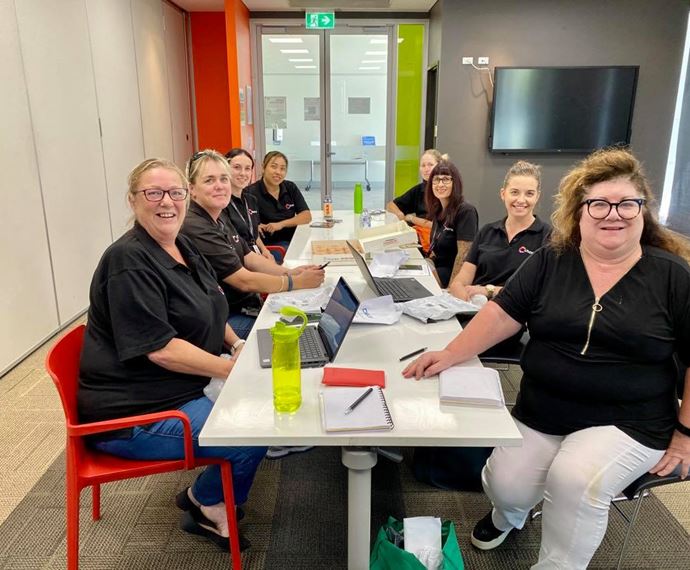Using lived experience to address hardship and disadvantage
The 100 Families WA project worked towards a vision of an economically, socially and culturally just Western Australia, where families are supported to thrive together. This was progressed through action research aimed at reducing hardship for families living in WA.
100 Families WA was a collaborative research project between Anglicare WA, Centrecare, Jacaranda Community Care, Mercycare, Ruah Community Services, UnitingCare West, Wanslea, Western Australian Council of Social Service, the University of Western Australia (Centre for Social Impact, the Social Policy Practice and Research Consortium and the School of Population and Global Health) and the Lived Experience Advocacy Group.
To develop an ongoing evidence base on poverty, entrenched disadvantage and social exclusion in Western Australia that will be used by the policy and practice community.
WA Council of Social Service
1/1/2018
$2,949,611
Lotterywest
$1,750,000
Perth
Families, General Community
- By conducting research alongside 400 families, the project was able to better understand entrenched disadvantage in Western Australia.
- The research informed public policy and service design to better meet people's needs.
- Inspired collaborative approaches among service providers and between Government and not-for-profits to assist people out of entrenched disadvantage.
- Close collaboration between research partners, Lived Experience Experts and other stakeholders allowed the project to adapt to findings in real-time.
- The values that underpinned the project were well thought out and evaluated periodically.
- Keeping lived experience front and centre was imperative to the success of the project.
- Prioritising the development of practical and useable outputs that benefitted the community service sector and government resulted in faster changes of services offered to those experiencing disadvantage.
- Using the evidence collected in real-time influenced and improved system change through submissions to government, service providers and at hearings.
- Resource constraints have meant the project team are unable to fully captialise on the volume of qualitative research data.
- Publications about the values and perturbations of the lived experience research process is still a work in progress.
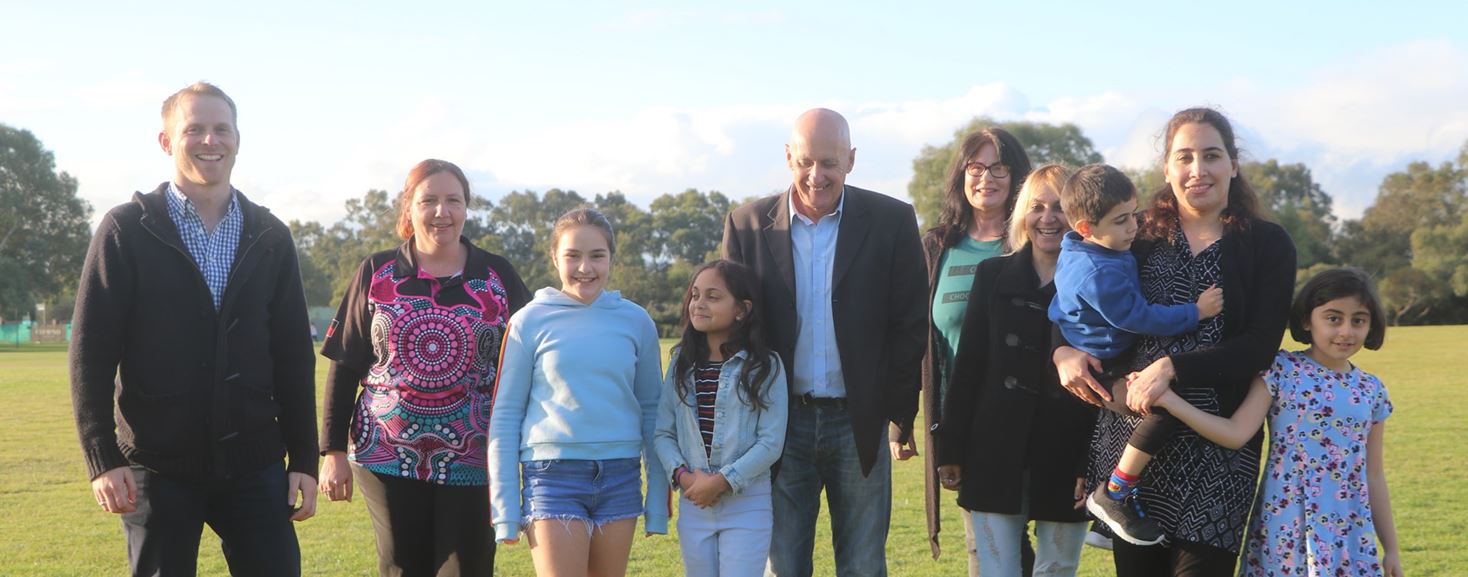
Opportunity
Many complex factors contribute to entrenched disadvantage in Western Australia, and there are many people who face multiple sources of disadvantage, some of which are intergenerational.
“Entrenched disadvantage occurs when people face sustained low income over time inadequate to meet basic needs, and face significant barriers to overcoming disadvantage in one or more major human well-being domains including mental and physical health, housing, education, safety, jobs and social relationships. Disadvantage for some may be experienced over the very long term including from childhood and across generations.”
100 Families Bulletin No. 1, May 2019
In 2018, the Australian Government’s Select Committee on Intergenerational Welfare Dependence identified the following factors that increased the risk of entrenched disadvantage:
- Geographic location (accessibility / remoteness).
- Education attainment.
- Indigenous and single parent status.
- Suitability of available employment.
- Health and family welfare.
- Availability of appropriate support systems. [1]
The Select Committee also found that being place-based was critical to the successful delivery of programs that address entrenched disadvantage. Additionally, improved data collection and evaluation was imperative to implement effective welfare programs.
By working with more than 400 families in the Perth metropolitan area, and partnering with organisations and research bodies, the 100 Families WA project aimed to make a significant contribution to the research, evidence base and resources available to support a reduction in entrenched disadvantage in Western Australia.
“We want what every human wants, a safe home, adequate food and resources for ourselves and our families, access to healthcare and opportunities to pursue connection, purpose and to be treated with dignity.”
100 Families WA Community Advisory Group [2]
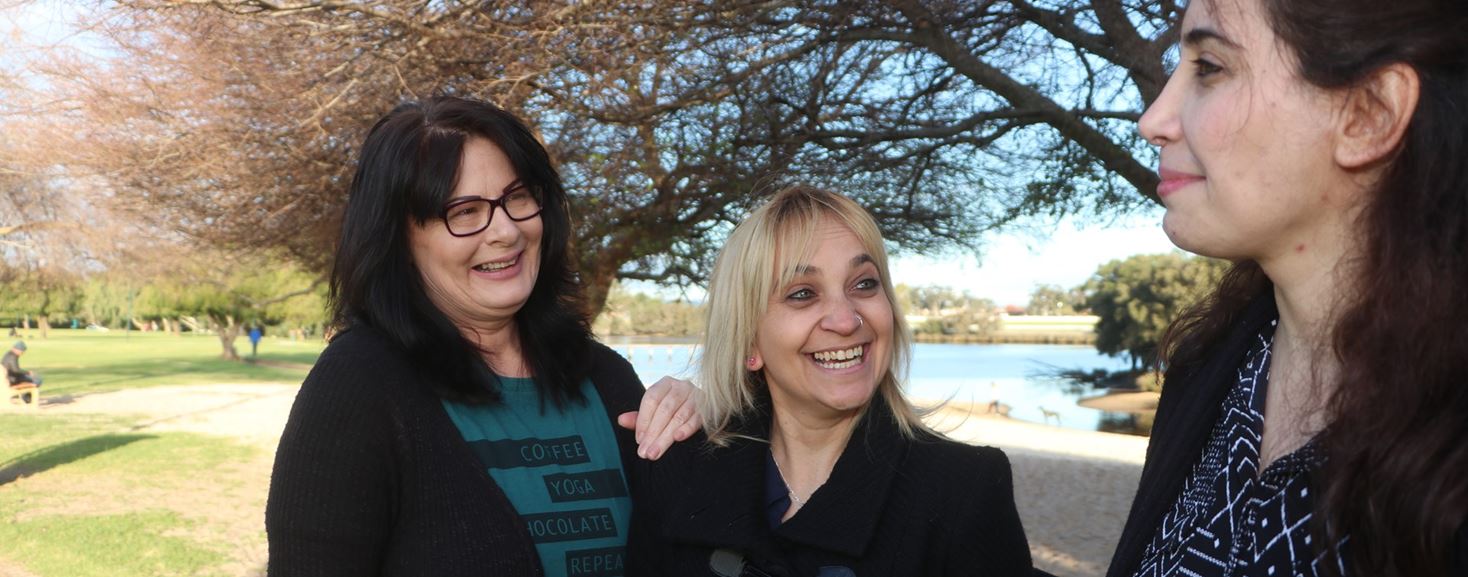
Approach
The 100 Families WA project worked with 400 families periodically over 2.5 years and followed 100 families fortnightly during twelve months in the Perth metropolitan area, mapping their interactions with agencies. The goal of the project was to answer the question “What enables and what inhibits positive change for families experiencing vulnerability and disadvantage in WA?”.
The project aimed to:
- Engage with the significant social issues of entrenched disadvantage.
- Involve families with lived experience of entrenched disadvantage at every stage of the project.
- Develop collaboration between a wide range of agencies with a shared interest in reducing entrenched disadvantage.
- Explore new resources to develop and test approaches that impact on entrenched disadvantage.
- Have a significant influence upon policy and practice across a range of social policy areas.
A reference group was established, comprised of key stakeholders to help guide the project. The group provided advice to the project team on broad strategic issues.
The 100 Families WA project committed to researching with people rather than on them.
At the start of the project, the UWA Consumer and Community Health Research Network led Community Conversations with members of the community affected by entrenched disadvantage. Early insights were gathered through these conversations, as well as guidance on how the project could appropriately recruit families for the study.
The 100 Families WA project had three main phases, consisting of:
- Engagement with families: to understand the barriers and challenges faced, and the pathways families follow when moving out of entrenched disadvantage.
- Ethnographic data collection: to understand the lived experience of disadvantage in WA. This included planning, ethics approval, recruiting families through partner agencies, training, research, interviews, and evaluation.
- Population level data collection: to develop a comprehensive evidence-base of the causes and structure of entrenched disadvantage.
“This three-year project has felt like a long and uncertain journey, however many of us have been living with uncertainty, scarcity and exclusion for our entire lives, some of us for generations. Our hope is that having shared our stories, our expertise and advice, others will gain insights and commit to engage with our lived experience beyond seeking to simply service our immediate needs.”
100 Families WA Community Advisory Group [2]
Impacts and outcomes
By conducting research alongside 400 families, the project was able to better understand their experience, and what existing efforts to alleviate disadvantage were working, not working or needed to change.
Key outcomes achieved through the project were:
- The inclusion of families in designing strategies to meet their identified needs.
- A better understanding of entrenched disadvantage in WA.
- Informing public policy to better meet people’s needs.
- Informing service design to better meet people’s needs.
- Inspiring collaborative approaches among service providers and between Government and not-for-profits to assist people out of entrenched disadvantage.
A series of key themes identified across the project allowed service providers and government to better understand how to support individuals experiencing entrenched disadvantage. Themes included:
- People experiencing entrenched disadvantage need support.
- Families want to feel seen, heard and appreciated.
- People want the best for their families and, crucially, they want to be involved in achieving it.
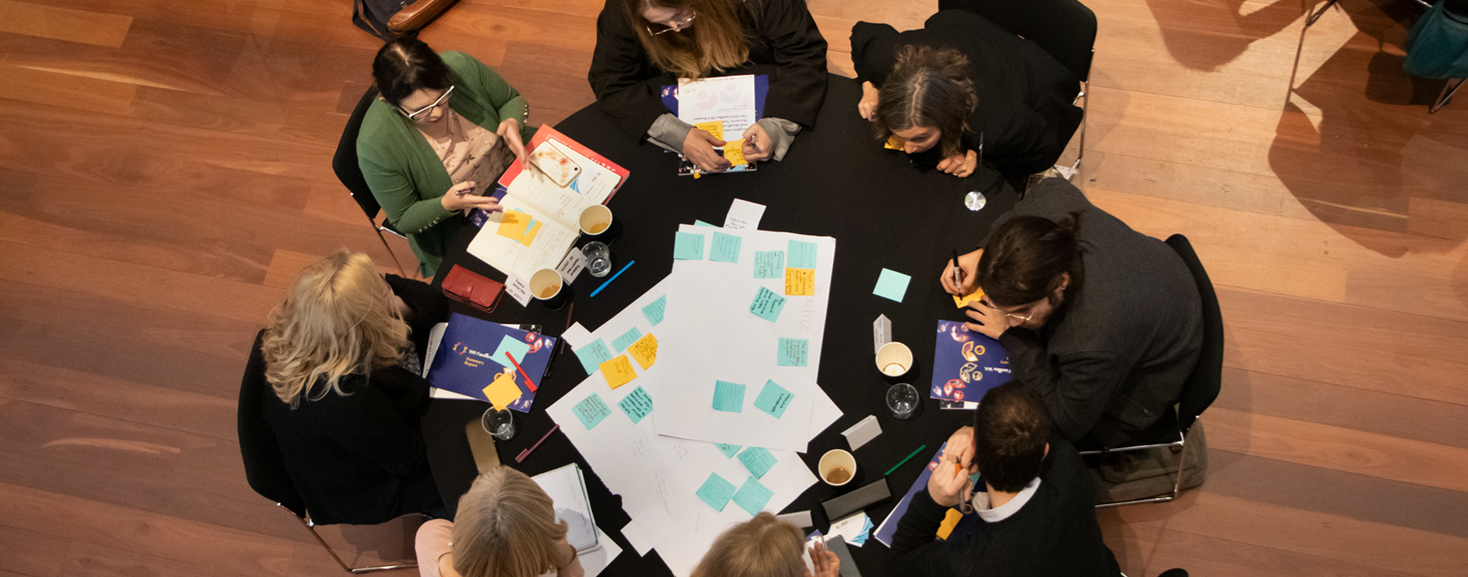
100 Families WA has had an impact far beyond the original project scope, informing research, programs and individuals in significant ways. As of March 2023, the 100 Families WA legacy includes:
- Findings have been used in informing advocacy on a range of issues including adequate income, housing, food security. Anglicare WA and WA Council of Social Service have drawn on 100 Families WA data regularly in communications with Government and in submissions to Federal and State governments.
- Inspired the Sunshine Project, currently being run by Ruah and Anglicare WA, exploring alternative approaches to support people in entrenched disadvantage to define and work towards "the good life".
- Resources from the project including the Welcome to our World online platform are being distributed in schools, as part of the It Only Takes One Initiative. Additionally, some community organisations have reported using it as part of their employee inductions/training.
- Empowered lived experience advocates who participated in the 100 Families WA Lived Experience Advisory Group (previously The Community Advisory Group) to become actively involved in numerous other advisory groups.
- Project findings continue to be used in designing new approaches. For example, Anglicare WA is currently designing a trial on supporting people into employment, based on findings from 100 Families WA.
- The 100 Families WA e-learning portal has been developed and is being used in organisations across the state to upskill/induct staff and inform community groups. The platform is an evidence informed, lived experience led portal that is also being used policy and program/project design and evaluation.
What worked?
Close collaboration facilitated real-time refinement and finessing
The collaboration between all research partners was close and highly successful. Although not without its ups and downs, the project team and research partners navigated these throughout the project. The learnings during the process enabled the project team to finesse the way they worked throughout the project. The collaboration and communication between service providers, academics, lived experience experts and peak bodies was also effective, laying a solid foundation for the project to operate from.
The values that underpinned the project were thought out and evaluated periodically to review them in real-time. When changes were necessary, they were made. For example, a governance amendment to include members of the lived experience group on the project team (not as a side arm to the group).
Keeping lived experience front and center was both imperative and hard work
Maintaining the integrity of the role of lived expertise was simultaneously a particularly hard part of the work, and one of the most successful aspects of the project. 100 Families WA commenced with centering co-design, growing this into full engagement across the project’s breadth.
Practical outputs quickly impacted service delivery and system change
Prioritising the development of practical and useable outputs (included on the 100 Families WA website) that benefitted the community services sector, government and other stakeholders resulted in faster improvement of services offered to those experiencing disadvantage. The project team made the decision to prioritise the development of these outputs before any academic publications were made.
Additionally, being able to use the evidence collected in real-time influenced and improved system change through submissions to government, service providers and at hearings.
Additional outcomes and actions can be read on the 100 Families WA website.
Key challenges
Data collection, analysis and publication requires significant time and money
The project team has not yet been able to capitalise on the magnitude of the qualitative research data. This is due to both the volume of data, as well as there being insufficient funds to enable detailed Nvivo transcribing and analysis.
Additionally, publications about the values and concerns of the lived experience research process are still a work in progress as a result of external impacts on human resourcing.
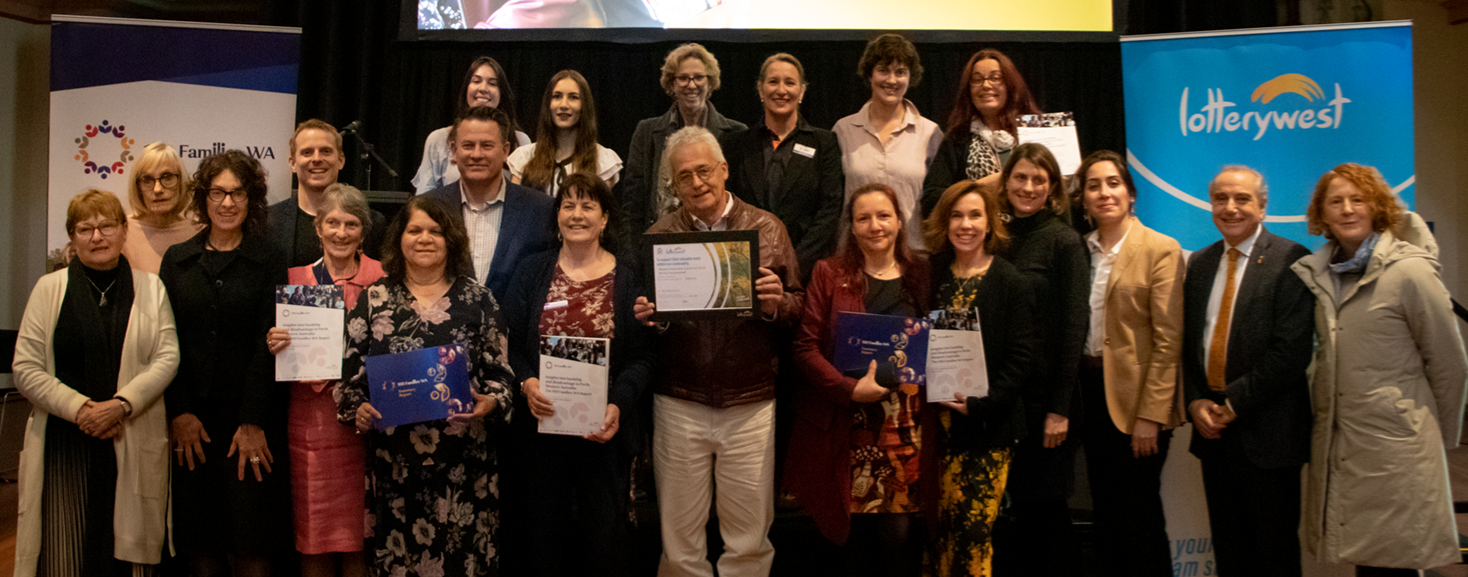
REFERENCES
- Australian Government. Living on the Edge. 2018 [cited 2023 31 January]; Available from: https://www.aph.gov.au/Parliamentary_Business/Committees/House/Former_Committees/Intergenerational_Welfare_Dependence/IGWD/Final_Report
- Phillips, S., Seivwright, A., Young, S., Fisher, C., Harries, M., Callis, Z., and Flatau, P. (2021). Insights into hardship and disadvantage in Perth, Western Australia: The 100 Families WA Report. The 100 Families WA project, Perth, Western Australia: 100 Families WA https://100familieswa.org.au/resources/100-families-wa-full-report/
Learn about wellbeing
Understand how your community is going to help you to better target and plan your project.
Ready to plan your project?
Understand your vision, plan your impact and report on the outcomes of your project with three easy interactive tools in the Community Impact Planner.
Acknowledgement of Country
The Western Australian Community Impact Hub acknowledges and pays respect to the Traditional Owners of the land on which we are based, the Whadjuk people of the Noongar Nation and extends that respect to all the Traditional Owners and Elders of this country. We recognise the significant importance of their cultural heritage, values and beliefs and how these contribute to the positive health and wellbeing of the whole community.
![IMG 8451[1]](/media/yhnbmsph/img_8451-1-resized.jpg?anchor=center&mode=crop&width=690&height=570&rnd=133045355965530000&quality=80)

